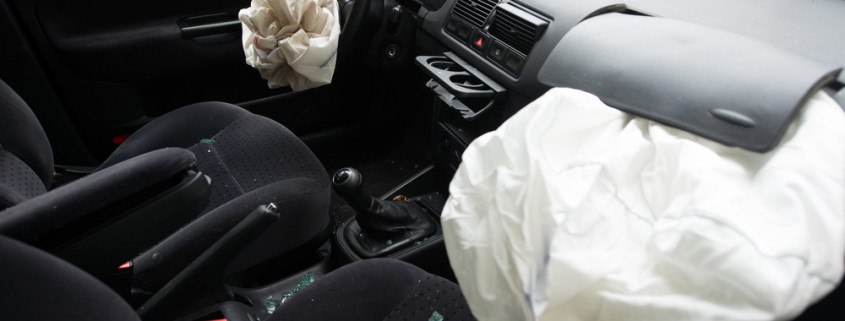Prevent Car Accidents: Check for Recalls
A worried young woman called our office with an unusual question related to car accidents. She wasn’t calling about a catastrophic injury, a wrongful death, or a car accident she’d been in—she was calling about an accident she was afraid she was going to have.
She explained she had purchased a new car in 2014, but had been having problems with the car stalling. She had taken it to the dealer several times with no success. They would check her car and tell her they couldn’t find anything wrong with it. She said knew something was wrong and she was very concerned. She had recently had a close call when her car stalled while she was going through an intersection, and she was almost in a t-bone collision.
The caller did not associate the vehicle recall crisis of the past few years with her car’s problem. She didn’t realize that her car could be one of the millions of vehicles that have been recalled over the past several years for defects ranging from faulty airbags, ignition switches, tires, fuel tanks, etc.
Our office performed an internet search of recalls of her vehicle’s make, model and year, and quickly determined that her car was being recalled for the engine stalling. She was in disbelief that the dealer would not tell her about the recall or fix the problem with the engine.
Is Your Car Being Recalled
Consumers can make sure their car is up-to-date on the latest recall action with a simple internet search. If your vehicle is the subject of a recall and you don’t take action, it can lead to car accidents that can cause serious injury or wrongful death. For example, some drivers who have been in auto accidents in vehicles equipped with Takata airbags, which shoot debris into the cabin of a car, have been killed and others seriously disfigured by these airbags.
To find out if your vehicle is part of a recall, enter its vehicle identification number at safercar.gov, which is a website run by the National Highway Traffic Safety Administration. If you find your vehicle has a defective part that needs to be replaced, contact the dealer immediately to schedule an appointment.
Caution When Buying Used Vehicles
Typically, consumers performing their due diligence when buying a used car take the vehicle to a trusted mechanic for an inspection and ask the seller for a Carfax report. Consumers should now add another step to their research and check the vehicle’s recall history. Again, it’s easy to do at the NHTSA safercar.gov website.
New Vehicles May Also Have Recalled Parts
A recent congressional report raised concerns that new cars are being sold with defective Takata airbags. Consumers need to be aware that some car manufacturers are selling new vehicles equipped with defective parts, and these cars will be the subject of recalls as they’re being driven off the lot. When buying a new car consumers must ask the dealer to confirm if their vehicle was made using any defective parts that are involved in a recall, and if the parts will be replaced before the sale of the vehicle is completed.
Report Car Issues
Consumers should frequently check their vehicles at safercar.gov for any recall activity, but if there is an issue with their car that they feel has not been identified, reporting the problem to NHTSA will help regulators hold auto manufacturers to the highest standard of auto safety.
NHTSA won’t subject a vehicle class to a recall until they make sure the problem is serious. Timely reporting of issues by consumers will help make the process of recalling defective parts more efficient. Safercar.gov allows consumers to File a Complaint and report issues with their vehicles that that may not yet be part of a recall.
Consumers should be able to trust that the vehicle they purchased was made without defective parts, and if the manufacturer identifies an issue, that they will notify owners immediately and correct the problem.






